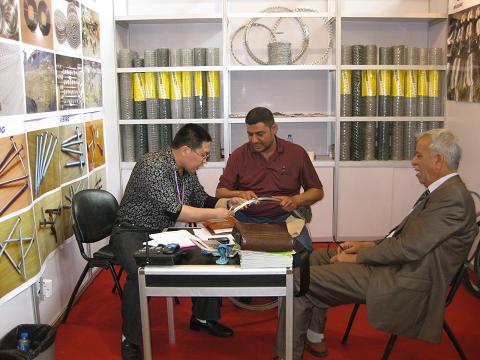Durable Cattle Fence Wire for Reliable Livestock Containment
The Versatility of Cattle Fence Wire
Cattle fence wire is an essential component in modern livestock management, playing a crucial role in keeping herds contained and secure. As agriculture becomes more advanced, understanding the various types of fencing options, particularly wire, is vital for farmers and ranchers alike. This article explores the importance, types, and benefits of cattle fence wire in ensuring effective livestock management.
Firstly, cattle fence wire serves as a physical barrier that defines property lines and keeps cattle safe from external threats, such as predators and highway traffic. It protects not only the cattle but also the surrounding environment by preventing animals from wandering into crops or neighboring properties. Without adequate fencing, the risk of livestock injury or loss significantly increases, making it a priority for any rancher.
There are several types of cattle fence wire available on the market, each designed for specific needs. The most common types include barbed wire, smooth wire, and high-tensile wire. Barbed wire is often used for perimeter fencing; its sharp points discourage animals from trying to escape or intruders from attempting to enter. However, while effective, barbed wire can also cause injury to animals, so it must be used thoughtfully.
Smooth wire, on the other hand, provides a safer option. It is typically used in conjunction with wooden or metal posts and can be employed for electrified fencing systems. This type of wire is flexible and easy to install, making it a popular choice for many livestock owners who prioritize animal welfare alongside security.
cattle fence wire

High-tensile wire is another noteworthy option. It is designed to be much stronger than regular wire, allowing for longer spans between posts, which can reduce installation costs and maintenance. High-tensile fencing is particularly advantageous for larger ranches, where traditional fencing might become too costly or labor-intensive. Moreover, it can be combined with electric fencing for an added layer of security, which is effective in keeping even the most determined livestock within the confines of the pasture.
The benefits of cattle fence wire extend beyond mere containment. A properly installed fence can lead to better herd management practices, as it allows for rotational grazing strategies that can improve pasture health and increase forage availability. This, in turn, can enhance the overall health and productivity of the cattle, leading to higher yields for ranchers.
Furthermore, fencing can also have economic benefits. A secure and well-maintained fence reduces the risk of livestock loss and minimizes potential legal issues arising from wandering animals. It can also increase property value, as prospective buyers often look for well-defined boundaries and effective livestock management systems.
In conclusion, cattle fence wire is a vital investment for any livestock operation. With various types and benefits available, ranchers must evaluate their specific needs to make informed decisions regarding fencing solutions. Ultimately, a reliable cattle fence promotes the health and safety of the herd while enhancing overall operational efficiency.
-
The Durability and Versatility of Steel Wire
NewsJun.26,2025
-
The Best Iron Nails for Your Construction Projects
NewsJun.26,2025
-
Strengthen Your Projects with Durable Metal Stakes
NewsJun.26,2025
-
Get the Job Done Right with Duplex Nails
NewsJun.26,2025
-
Explore the Versatility and Strength of Metal Mesh
NewsJun.26,2025
-
Enhance Your Security with Razor Wire
NewsJun.26,2025














